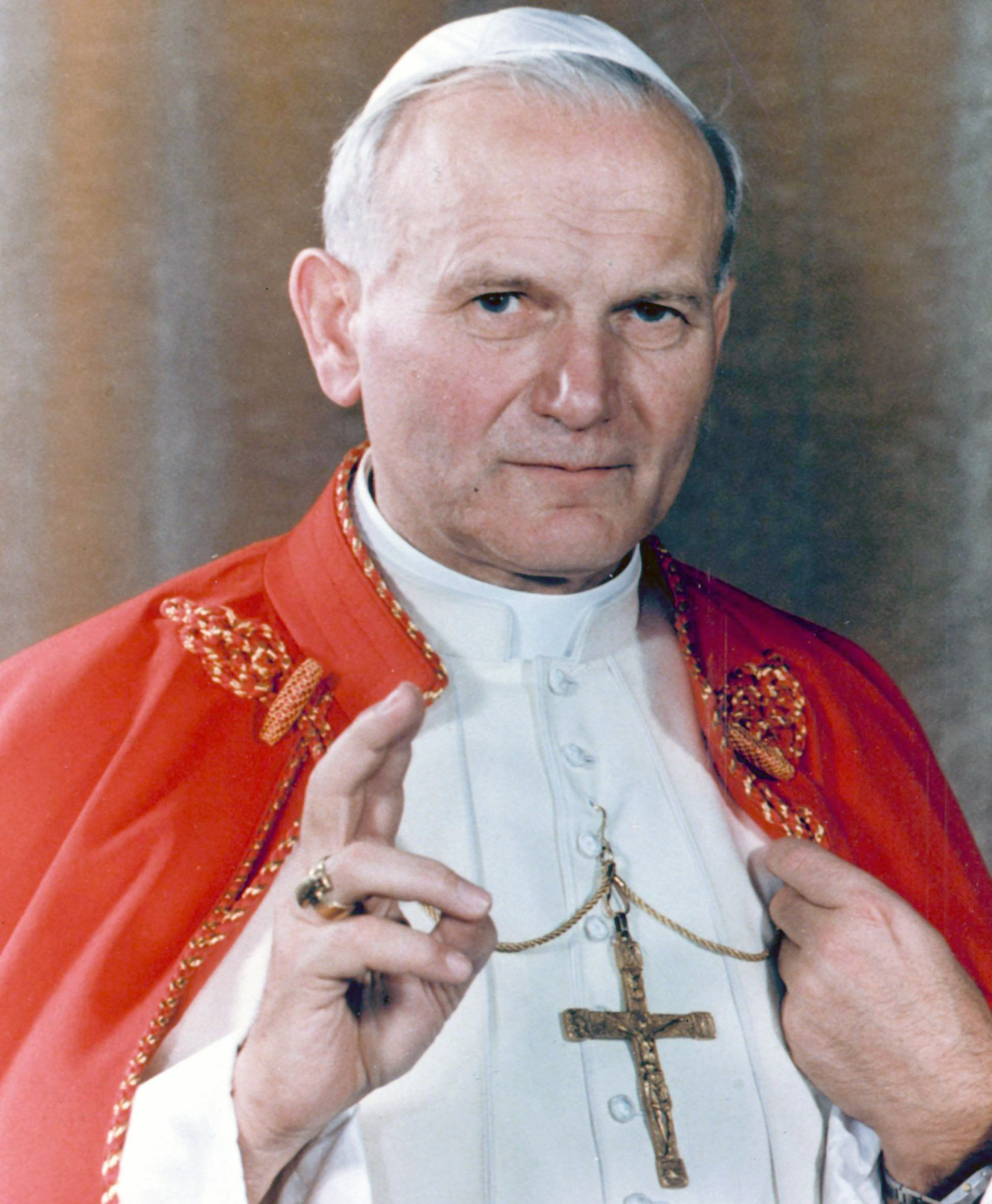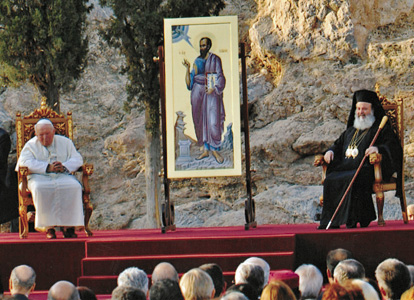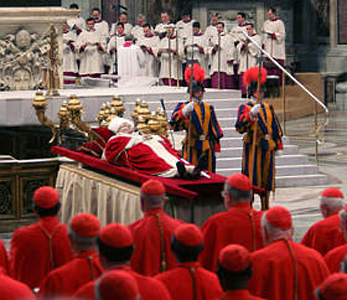John Paul II, Saint (1920-2005), was a pope of the Roman Catholic Church. Born in Poland, he was the first non-Italian pope since Adrian VI, a Dutchman elected pope in 1522. John Paul was elected pope in 1978.

More than any other pope in history, John Paul made the papacy part of the world scene by traveling to about 130 countries, the majority of them developing nations. He toured the United States several times. The pope used these journeys to show the universal character of the Roman Catholic Church and to personally deliver the message of the Gospel to many peoples. He skillfully used television and other media to convey his vision of faith to the modern world.
In 1984, John Paul negotiated with the Italian government a new concordat (agreement) recognizing the separation of church and state. The Italian parliament approved the agreement in 1985. Also in 1984, the pope and President Ronald Reagan of the United States announced the establishment of diplomatic relations and the exchange of ambassadors between the United States and the Vatican. In 1994, the Vatican established full diplomatic relations with the state of Israel.
John Paul had an outgoing personality that made him enormously popular. He attracted such large crowds to his weekly audiences (public appearances) that the audiences had to be moved from St. Peter’s Basilica to the square outside. In an appearance there in May 1981, he was shot and seriously wounded. Mehmet Ali Agca, a Turkish terrorist, was convicted of the attack.
John Paul was theologically conservative. He strongly upheld traditional church teachings and opposed changes such as allowing priests to marry or admitting women to the priesthood. In 1983, he issued a new code of church law. In 1992, he approved a new catechism, a detailed statement of Catholic belief.

Many of John Paul’s speeches, encyclicals (letters to the entire church), and other messages reflected his progressive social views. Several encyclicals urged governments to improve the condition of the world’s poor and called upon the rich nations to work toward a new world economic order. The pope strongly defended human rights and stressed the solidarity of all human beings as one family created by God. Many people believe he played an influential role in the collapse of Communism in Eastern Europe and the Soviet Union.
Loading the player...Pope John Paul II visits Majdanek concentration camp
John Paul was born on May 18, 1920, in Wadowice, Poland, near Kraków. His given and family name was Karol Jozef Wojtyła. He was ordained a priest in 1946 and taught ethics and philosophy for a number of years at universities in Kraków and Lublin. He also served as chaplain for university students. He became auxiliary bishop of Kraków in 1958, archbishop of Kraków in 1964, and a cardinal in 1967. In 1994, his written responses to interview questions were published as Crossing the Threshold of Hope. He also wrote two memoirs, Gift and Mystery (1996) and Rise, Let Us Be on Our Way (2004). The pope’s reflections on how Christianity shaped European culture appear in Memory and Identity: Conversations at the Dawn of a Millennium (2005). John Paul died on April 2, 2005. He was canonized (proclaimed a saint) in 2014.

